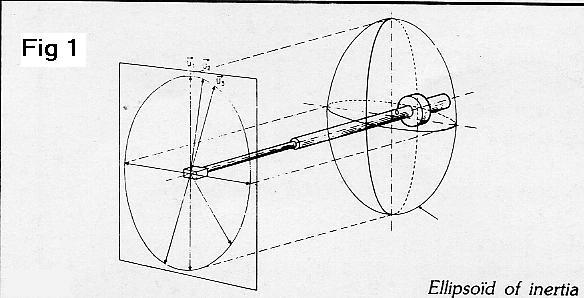Geoff Husband (TNT-Audio ezine) writes: One of the joys of doing my series of turntable tests has been discovering the enthusiasm that seems universal with anyone connected with vinyl. One person stands out and that is Pierre Lurné of Audiomeca.
This man has been deeply involved in vinyl reproduction for well over 30 years now (the first arm was in 1968...), but for the last ten years his company has concentrated on cutting-edge digital products, and there haven't been any developments in their Analogue range for that time. Analogue sales now account for a tiny part of Audiomeca's output and yet on contacting Pierre for the first time I found a man who's heart and soul remain steeped in Analogue. As well as sending me a very fine turntable/arm, the Romance/Romeo, he bombarded me with emails and reams of hand written A4 sheets setting out his thoughts on getting the best for LP records. His roots are firmly in an engineering background, and unlike many 'snake oil' practitioners he can back all his ideas up with the Math...
I'm no editor and so I've collected together these writings and put them together as a series of thoughts and ideas in an interview form. As much as possible I've stuck to his excellent English which if you read it with a French accent is even better 🙂
Oh and before I start Pierre added the following to one of his early emails, which tells you all you need to know... "Except between ourselves I really don't want to criticise any other manufacturers by name as I consider all of them as Analog friends."
TNT-AUDIO >
So, first question - What started you in hi-fi and particularly arm building?
PIERRE LURNÉ >
When I was a student my pocket sounded very empty... I saved coin by coin to buy records, vinyl records of course. This story starts in "old Analogue good times". At home I had a very cheap turntable only, you know the sort that looks like a suitcase, all in one, the cover being the speaker - a 'Teppaz Oscar'!
Every time I listened to one of my darling records I was able to hear the quality degradation. It was clear that this was due to the cartridge/arm combination. Also I realised that a good turntable was the key point as it works as the very source, nothing can be restored afterwards, as it respects or destroys the record integrity. Finally I decided to buy a good cartridge and build an arm and a turntable (impossible to make a cartridge for a beginner). I made a lot of mistakes but the records of that period are still with me in a rather good shape.
Then I progressed step by step, making other models and becoming little by little .......







